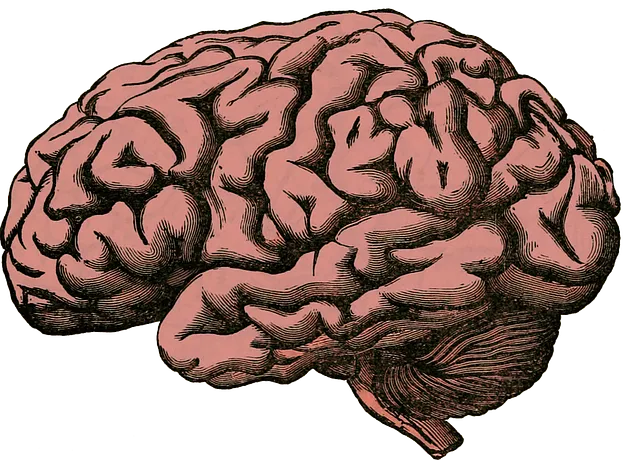Kaiser Permanente Mental Health Englewood prioritizes crisis intervention and emotional regulation through tailored programs and interventions. They integrate Mind Over Matter principles into their coaching, empowering individuals with resilience and coping mechanisms. Services include risk assessments, targeted interventions, self-care routines, and compassion cultivation practices for long-term mental well-being. With robust communication and assessment skills, they create safe spaces and offer post-crisis care, prevention strategies, and tailored therapy sessions for holistic recovery.
In today’s challenging social landscape, crisis intervention strategies are vital for communities to navigate and support individuals in distress. This article provides an insightful guide through various essential aspects of effective crisis care. We explore the critical role played by organizations like Kaiser Permanente Mental Health in fostering community resilience, focusing on their initiatives in Englewood. Additionally, we delve into practical strategies, communication techniques, and post-crisis care measures to ensure a comprehensive approach to crisis intervention.
- Understanding Crisis Intervention: A Brief Overview
- The Role of Kaiser Permanente Mental Health in Community Support
- Strategies for Effective Emergency Support at Englewood
- Communication and Assessment Techniques During Crises
- Post-Crisis Care and Prevention Measures: A Comprehensive Approach
Understanding Crisis Intervention: A Brief Overview

Crisis intervention is a critical component of mental health support, designed to provide immediate assistance during times of severe distress or upheaval. At Kaiser Permanente Mental Health Englewood, we recognize that effective crisis intervention strategies can make a significant difference in an individual’s life, helping them navigate challenging situations and fostering resilience.
Our guidance emphasizes the importance of understanding the underlying causes and triggers of crises, focusing on emotional regulation as a core strategy. By integrating Mind Over Matter principles into our Mental Wellness Coaching Programs Development, we empower individuals to develop coping mechanisms that promote mental wellness. Through tailored interventions, we aim to support clients in managing intense emotions, preventing recurring crises, and cultivating long-term strategies for maintaining stability and overall well-being.
The Role of Kaiser Permanente Mental Health in Community Support

Kaiser Permanente Mental Health plays a pivotal role in supporting the community’s emotional well-being and resilience, especially in areas like Englewood where access to mental health services is crucial. This healthcare organization offers a comprehensive range of resources and programs aimed at promoting self-care practices and trauma support services. By integrating these initiatives into the fabric of the community, Kaiser Permanente empowers residents with the tools necessary for maintaining their mental health and overall emotional equilibrium.
The organization’s approach involves not only direct patient care but also community engagement initiatives. They facilitate workshops, seminars, and awareness campaigns focused on educating locals about various self-care practices and emotional well-being promotion techniques. This proactive strategy ensures that individuals in Englewood have the knowledge and skills to navigate mental health challenges effectively, fostering a supportive environment where everyone can thrive.
Strategies for Effective Emergency Support at Englewood

At Englewood, Kaiser Permanente mental health services prioritize effective emergency support strategies to ensure swift and compassionate intervention during crises. One key approach involves comprehensive risk assessments tailored for each individual in distress. Mental health professionals conduct thorough evaluations, factoring in personal history, current circumstances, and potential triggers to anticipate and mitigate risks. This proactive measure enables the team to implement targeted interventions, providing immediate relief while fostering long-term resilience.
Moreover, Englewood encourages clients to incorporate self-care routine development into their mental health journeys. By teaching individuals to recognize their needs and engage in practices that nourish well-being, such as mindfulness exercises or creative outlets, they empower themselves to better manage crises. In conjunction with compassion cultivation practices, where patients learn to cultivate empathy and self-compassion, these strategies create a supportive environment conducive to recovery.
Communication and Assessment Techniques During Crises

Effective communication and assessment are cornerstones of crisis intervention. During high-stress situations, professionals like those at Kaiser Permanente mental health Englewood must employ tailored techniques to understand individuals’ experiences and needs. This involves active listening, where practitioners demonstrate empathy and validate the person’s feelings, fostering a safe space for open dialogue. It also entails clear and concise verbal communication, ensuring instructions or information are easily comprehensible in chaotic settings.
Assessing an individual’s mental health crisis requires a multifaceted approach. Professionals should consider cultural sensitivity in mental healthcare practice, tailoring their responses to respect diverse beliefs and values. Mental health education programs design plays a pivotal role here by equipping practitioners with the knowledge to recognize cultural nuances and incorporate them into crisis intervention strategies. Additionally, assessing coping skills development is crucial; understanding an individual’s ability to manage stress can guide interventions, offering targeted support for better long-term mental well-being.
Post-Crisis Care and Prevention Measures: A Comprehensive Approach

After a crisis intervention, providing ongoing care and implementing prevention strategies is crucial for long-term recovery. Kaiser Permanente mental health services in Englewood, for instance, emphasize a holistic approach to post-crisis support. This involves tailored therapy sessions aimed at improving self-esteem and addressing underlying issues that may have contributed to the crisis. By offering specialized programs, these institutions facilitate emotional healing processes, enabling individuals to develop coping mechanisms and build resilience.
Additionally, prevention measures play a vital role in crisis intervention. Programs focused on depression prevention, for example, can help identify risk factors early on. Through education and support networks, individuals learn to recognize signs of distress and seek help promptly. This proactive approach ensures that emotional healing processes are initiated before crises escalate, fostering a healthier and more stable environment for all.
Crisis intervention strategies, as highlighted in this article, are vital for addressing immediate mental health needs within communities. The collaboration between organizations like Kaiser Permanente Mental Health and local initiatives, such as those at Englewood, demonstrates the power of comprehensive support systems. By combining effective communication techniques, thorough assessment methods, and post-crisis care, we can create a resilient and supportive environment. Encouraging community engagement and access to resources, similar to what Kaiser Permanente provides, is key to preventing and mitigating future crises. This holistic approach ensures that individuals in need receive the necessary guidance and care, fostering a healthier and more stable society.






